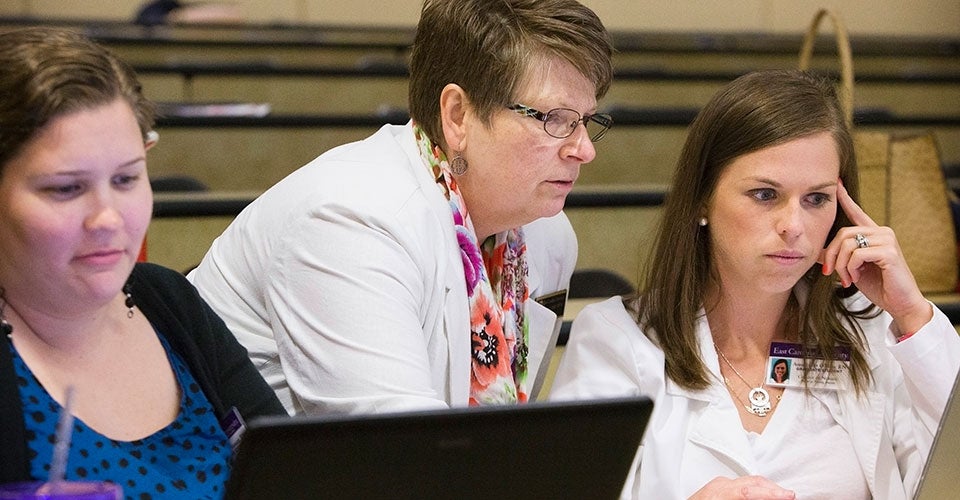Faculty
While most educational activities are not subject to export controls, Office of Foreign Assets Control sanctions sometimes limit what we can do with sanctioned countries or with restricted persons or entities. In many cases, OFAC authorizes certain activities via general licenses. For these, if you’re engaging in the activity, say with a professor at a university in a restricted country, it’s better to understand that the activity initially is prohibited, yet OFAC authorizes the activity via general license. For activities not already authorized by general license, a specific license might be required.
The ECU Office of Export Controls and Customs can work with you to determine whether or not a license is required, and if so, whether the activity is authorized already by general license, or if we need to request a license.

Faculty Export Activities
| Is it OK? | Activity | Comments |
|---|---|---|
| Yes | Non-U.S. persons on ECU’s campus participating in undergraduate and graduate level catalog courses and their teaching laboratories | Assuming the student has a student visa, they are authorized to study |
| Usually | Non-U.S. persons taking online undergraduate courses in the humanities, social sciences, law or business | Restrictions apply to individuals ordinarily resident in North Korea and Syria |
| Sometimes | Non-U.S. persons taking online undergraduate courses in health or physical sciences | For some sanctioned countries, study is authorized only if typical introductory courses and equivalent of courses ordinarily required for completion of undergraduate degree program |
| Sometimes | Non-U.S. persons taking online graduate courses | For some sanctioned countries, this might require a specific OFAC license |
| Usually | Attending domestic or international conferences where foreign persons are present | Domestic conferences where the interested public may attend are okay as long as there are no special sessions tailored only to individuals of a sanctioned country; open conferences in most foreign countries okay, but some sanctioned countries require licenses to attend. Restrictions apply to Cuba and Iran. Prohibitions exist for North Korea and Syria. |
| Usually | Informally collaborating with faculty from foreign universities on fundamental research topics | Formal collaborations with universities listed on the Global Affairs site and where ECU has a formal agreement in place have been vetted. Informal collaborations on fundamental research topics are okay except for with institutions named on U.S. restricted party lists. Also of special concern are informal collaborations with the highly-sanctioned countries: Cuba, Iran, North Korea, or Syria. Contact OECC if you wish to screen your collaborators. |
Question 1: I am a professor who wants to work with foreign graduate students who have a passion for my fundamental research topic. What license might I need?
An OFAC license. If, for example, the graduate student is located in Iran, providing research assistance without a specific OFAC license likely is prohibited. The most highly-sanctioned countries where specific licenses might be required to engage in certain activities with students ordinarily resident in those countries include, for example, Cuba, Iran, North Korea and Syria.
Question 2: In my role as a journal editor or as part of a journal’s peer review panel, I routinely receive submissions from researchers who live in these highly-sanctioned countries. This activity is okay, right?
Peer review, including substantive editing, is allowed for submissions from students in Cuba, Iran, and Syria, but not for students in North Korea. Also, be certain not to provide individualized services above routine peer review. These could require specific OFAC licenses. If you’re in doubt, please reach out to the ECU Office of Export Controls and Customs.
Question 3: We have many full-time faculty who are from other countries. These have no restrictions, right?
While full-time university employees generally do not require export licenses to have access to restricted technology, this does not always hold true. For example, some technology and source code releases require that the university employee, including full-time faculty, be a permanent resident of the U.S. throughout employment, be informed in writing that the technology or source code may not be transferred to other foreign nationals without prior U.S. government authorization even after the tenure of employment at the university, and the employee cannot be from any of the following countries: Afghanistan, Belarus, Burma, Central African Republic, People’s Republic of China, Democratic Republic of the Congo, Cuba, Cyprus, Eritrea, Haiti, Iran, Iraq, North Korea, Lebanon, Libya, Somalia, Sudan, Syria, Venezuela and Zimbabwe. If you think you might be working with restricted technology, please reach out to us.
Question 4: I strongly support academic freedom and intend to provide distance education courses to anyone who is willing to sign up. Would I ever require an export license to provide instruction? The most highly-sanctioned countries where specific licenses might be required to offer certain online courses include, for example, Cuba, Iran, North Korea and Syria. Keep in mind that the specific license requirement does not prohibit ECU from offering the course if we obtain the specific license first. However, doing so without notifying OFAC and obtaining the specific license may subject ECU or the faculty member, or both, to penalties and even imprisonment depending on the violation. Reach out to the ECU Office of Export Controls and Customs if you have any doubts about the course, lecture or seminar you wish to offer.